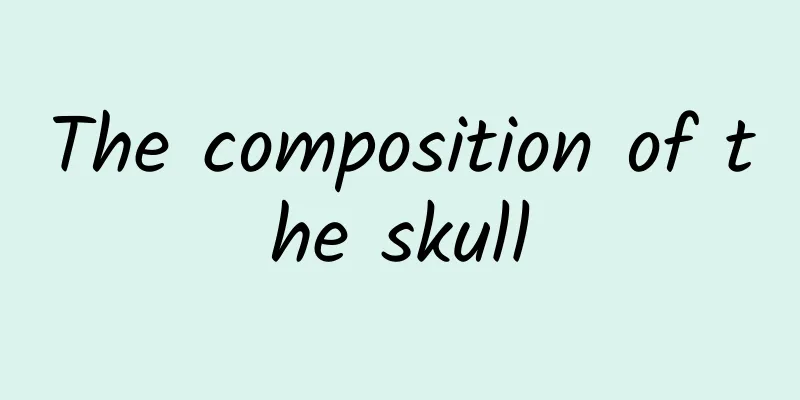Laozi and Zhuangzi's Philosophy and Chinese Medicine Health Preservation

|
Today, health-preserving methods are popular in society, and people talk about health-preserving with great interest. But how did the traditional Chinese medicine health culture come into being? What is its relationship with the health issues in the philosophical works of Laozi and Zhuangzi? From the perspective of etymology, the contents related to health preservation in "Huangdi Neijing" were originally classified by scholars as "health preservation". In fact, if we trace back to the origin, the term "health preservation" first appeared in "Laozi". It is said that "those who are good at preserving their health will not encounter rhinoceroses or tigers when walking on land, and will not be attacked by soldiers when entering the army" (Chapter 50). Here, “不遇” and “不被” both mean “not facing directly”, which is extended to mean “staying away from harm”. In fact, only by avoiding or staying away from harm can we help maintain our health. Although the term "health preservation" appears frequently in ancient Chinese literature, its meanings are very different. For example, in Xunzi·Ruxiao, there is a sentence “Take health preservation as one’s highest virtue”, where health preservation refers to governing or managing life; and in Mencius·Li Lou, there is a sentence “Those who preserve health are not qualified to handle major matters”, which means to take care of the living elderly. The word "health preservation" appears twice in "Zhuangzi·The Art of Health Preservation", and it is also the conclusion and focus of the fable "The Butcher Cuts Up an Ox". It uses a story about a chef (Bo Ding) telling the story of his skilled techniques in butchering beef (butchering an ox) to illustrate that one should seek benefits and avoid harm in social activities. After listening to what Bo Ding said, Lord Wenhui seemed to have realized something and said, "Great! After listening to what Bo Ding said, I understand the principle of health preservation." This is the origin of the allusion of "the way to keep in good health". In fact, the health preservation here does not refer to medical care, nor does it refer to recovery and longevity. Instead, it advocates the philosophy of keeping a low profile and protecting oneself. It means "do good without seeking fame, do evil without seeking punishment, follow the guidance of the Lord, and you can protect yourself, live a full life, support your parents, and live out your life." It just happens to hint at the idea of preserving life and living out your life. Although the "Inner Canon of Medicine" and traditional Chinese medicine contain content and methods of "health preservation", it is not called health preservation. Even if the term "health preservation" appeared, its meaning was different from today. Just as it is said in "Suwen·Da Lun of Four Qi to Regulate the Spirit": "This is the response of spring Qi, and it is the way to preserve health." The word "preserve health" in this sentence is paralleled with "preserve growth", "preserve storage" and "preserve storage" below, which are the same as the words about preserving health that we discussed, but have different meanings. It can be found in the "Linglan Secret Classic" which discusses the relationship between the twelve internal organs and the twelve official duties. After commenting on the common social phenomena such as "the master is clear" and "the master is not clear", that is, "the master is clear and the lower parts are safe", "the master is not clear and the twelve officials are in danger", it says "if you use this to maintain your health, you will live a long life", "if you use this to maintain your health, you will suffer disaster". Although the health preservation here has been linked to longevity and premature death, it still focuses on the principles of diagnosis and treatment. The use of health preservation for health care and longevity began around the Jin Dynasty. For example, Ji Kang's "On Health Preservation" is a representative work that believes that learning Taoism can prolong life. During the same period, there was also "Baopuzi" written by Ge Hong, which contained similar views. Ge Hong was also famous for his "Elbow Prescription" and alchemy, so he had a great influence on later generations. Despite this, Tao Hongjing of the Liang Dynasty also named his "Prolonging Life Record" as "Cultivating Nature". In the Treatise on the Causes and Symptoms of Various Diseases by Chao Yuanfang of the Sui Dynasty, there are few prescriptions and medicines for treating diseases, but the "health-preserving prescriptions and qigong methods" cited are very common. It can be seen that this method was already quite popular at that time. During the same period, Yang Shangshan first included the content of health preservation under the name of "health preservation" in "Huangdi Neijing Taisu"; later, Wang Bing annotated "Su Wen". Although he said in the preface that he "admired Taoism at a young age and had always liked health preservation", he only called the health preservation method "the way of self-cultivation" when annotating the relevant text. Until the Yuan, Ming and Qing dynasties, there was still no unified name for it. Under what circumstances do people place special emphasis on maintaining health? Of course, in adversity. Normally people feel refreshed when happy things happen to them. When they are in high spirits, they are neither depressed nor angry, and rarely get sick, so there is no need to worry about health preservation. It is easy to develop many illnesses when you are in adverse circumstances, but there is no need to worry about it. Because success and failure are always related to each other, and fortune and misfortune are always interdependent, and an end is often connected to a new beginning. Therefore, Taoism advocates keeping simplicity and unity, cultivating oneself and waiting for the right time. People may ask, is Taoist philosophy really useful for health care? The answer is yes. A typical example is Jia Yi, a talented scholar of the Western Han Dynasty who achieved success at a young age. After being dismissed from office and demoted, he did not commit suicide. Although he suffered a great blow while living in Changsha, he was inspired by Taoism and wrote "Fu Niao Fu" with the theme of "sharing life and death, and being indifferent to coming and going" to vent his resentment. Therefore, in a sense, Taoist philosophy is "philosophy in adversity." Since Laozi and Zhuangzi lived in the Warring States Period, the ideology of the declining slave-owning class they represented was gradually replaced by the ideology of the emerging landlord class. They felt that the ideology of the landlord class was unstoppable and they could only go with it. So we survive with patience and wait for change, dreaming of future development. From the point of view of the law of contradictions in class society, it is natural that their doctrine has become a philosophy of adversity. They also express their dissatisfaction with reality from time to time, exclaiming that the present is not as good as the past. This is reflected in the "Inner Canon of Medicine", which always compares the ancient and medieval times with the "present day", and always regards the "present day" as worthless. It can be said that philosophers talk about health preservation and wise men "deal with adversity". Although their doctrines and thoughts bear the imprint and prejudice of the decadent class, they are still brilliant sparks that flash out in the collision of two social systems and ideological fields in the era of transition from the old to the new. Critically inheriting the essence of Taoist health-preserving thought still has practical significance for health care and recovery for people in unfavorable circumstances. |
<<: How to correctly view TCM health preservation
Recommend
How to do anoscopy? Just three simple steps
The patient will feel some discomfort during anos...
What is the lack of skin itching? The cause of skin itching
Clinically, skin itching is mainly divided into t...
What to do if you have folliculitis on the vulva
Vulvar folliculitis is also a relatively common d...
What is the cause of Meniere's syndrome
If you want to effectively treat Meniere's sy...
What eye drops should I use for contact lenses?
Most people experience dry eyes when wearing cont...
Difference between vomiting blood and blood in stool
When thinking of vomiting blood, most people will...
Can a lost voice be restored to normal in one day?
Loss of voice indicates inflammation, and it is i...
What should I do if my hemorrhoids hurt?
Hemorrhoids are one of the diseases that people l...
Does heat in the palms indicate kidney yin deficiency?
It is common to feel hot palms in daily life. Fro...
Can pregnant women eat wild rice?
Postpartum women are in great need of nutrition. ...
How to treat ankle eczema
The number of people suffering from skin diseases...
Why do I feel chest tightness and weakness when it’s hot?
In many areas of our country, the weather is rela...
How much does Poria cocos cost per pound?
Job's tears is a common Chinese herbal medici...
What is the best medicine for anxiety disorder?
There are many anti-anxiety drugs. At present, th...
What is esophageal bulge?
The human body is made up of many parts, and ever...









